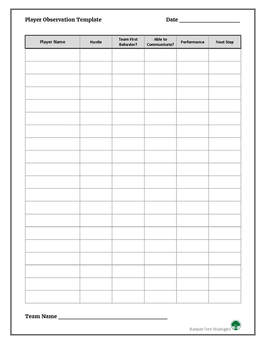|
Encouragement, Failure, and Observing Tick-tock, tick-tock, the clock keeps moving towards May 15th and the longer days and warmer evenings of late spring. The business calendar has many of us on planes, staying in hotels, and meeting with interesting people. The common questions are: What’s possible? When can we get it done? What’s next? Several themes have emerged for us in the last 45 days that are worth sharing. Encouragement, failure, and observing appear to not have much in common, but in the course of our travels we saw a common thread.  Pass the Encouragement Billy Graham died on February 21st, and we were struck by the breadth of personalities that weighed in on the impact of his teachings. One particular quote stood out and we decided to email it to a few people under the heading of “everyone needs some encouragement." It had to do with his response to a question he got at a conference later in his life. He was asked, “Who is the next Billy Graham?” He replied. “You all are the next Billy Graham.” We received a very high response rate in which people shared their own experiences and passed the encouragement back to us. We are hoping for a similar result in this newsletter. Encouragement came up around another topic that is timely and has to do with inspiring women and girls to lead. It is speculated that confidence can sometimes be missing from the minds of women and especially pre-teen girls. Encouragement from others appears to be a key ingredient. Katy Kay and Claire Shipman’s recent book called “The Confidence Code” outlines it in detail. We highly recommend either the adult or children’s version. Of course as word geeks we like that in the midst of the EN and the MENT there is something we love…. A huge dollop of COURAGE. Free-Falling Into Failure Working with companies, non-profits, and sports teams affords us a wonderful window into the world of effort and outcome. Goals are set, causes are cared for, and games are played. A haunting question lurks in many of the minds, what do I do if I try my hardest and fail? Seldom do we hear it verbalized, but we notice that much effort is made to sabotage the effort piece of the equation to allow the players a margin to recover their pride when the outcome is below the standard. It's much safer to reserve some effort and hope for success, if it gives you a nice mental pillow to rest your ego on..."well I didn't go all out so next time...." Our question for leaders is, what is this mindset and handicap doing to the productivity of your team? If you could minimize it and get your team to deal with success and failure with the same attitude, what would that look like? Under pressure we don't rise to the occasion, we fall to the level of our training. Achieving this outcome is no easy feat. One of the steps in getting there is done by providing a safe area to communicate what trying your hardest looks like, and having a recovery element to reward the effort. If people will risk their best in front of others, then when their limit is met, consider celebrating and providing them sanctuary to recoup and reflect. The power questions for leading a team to risk more, think more, and do more are: what did we learn, and what does it mean? As the leader facilitates the questions and honors the responses watch the trust on your team soar. We think other things will soon rise as well.  Observing Your Next Sporting Event Pitching in to support your children in their endeavors has a name. It’s called parenting. It’s a noble role and duty that changes with the decades. Currently from the ages of 4 to 14 there are many different roles a parent can fulfill in the area of youth sports. The roles have different levels of authority and requirements. Head Coach, assistant coach, team manager, culture keeper, league treasurer, league president, end of season of pizza party planner, are all roles parents fill. Both Sara and I have enjoyed participating and working with the kids and others parents these past ten years. What caught our eye this year is that after moving towns, we went from a head coach, league president, large authority role to that of an assistant coach. The opportunity to not have to coordinate and orate to 15 players on a team and to 200 players in the league and 30 to 400 parents left a void that allowed an observation framework to appear. This year we had room to see players individually be afraid of failure and to encourage them. Our interest in building framework for others to use also led us to come up with an observation grid to reflect on what the next step in each player’s development might be. This concept of an individual’s next step has excellent cross-over for the business world. Team sports are like companies. It is really easy to get lost watching the ball and only focusing on the key players. In youth sports, we have a charge to use the sport as a constraint to develop the player’s character and foster an interest in putting forth a maximum effort towards a shared goal. “Do your best for the team and learn how to smile and adapt in the face of adversity.” It can be fun and it can also be hard. In fact the fun meter changes over time. Sports Fun goes from going to the ice cream store kind of fun to climbing a hard hill fun. Matching the challenge to the age group and interest level can be difficult. With this in mind and with my new role allowing me time to observe, we came up with a sequential set of questions. 1. Did we observe the player hustle? a. This can be off the bus, on the sidelines, or in the game. 2. Did we observe the player exhibit team first behaviors? a. This can be off the bus, on the sidelines, or in the game. 3. Did we observe that the player remain centered and able to communicate during the competition? 4. Did we observe the players performance in the game/match? Each column has room for three answers: + for a yes, 0 for a no we did not observe, and – for we observed the player do the opposite of our desired outcome. Any parent or coach could observe a competition and use this template. What we noticed in using the form is that it really helps us coach the next practice. We are quickly able to recall the moment and the teaching concept that can be brought to the next practice. We can praise the player for the positive and share our observations and offer instruction to develop the spots that need to improve. As with most of our templates, they evolve over time, so please use it to improve it and we welcome your feedback. Looking ahead to the summer we hope that you will take joy in encouraging those around you to offer up their maximum effort and that your slow and generous observation eye is in use as you lead your teams. Courting Serendipity...at the Masters
Bonus Section: A curious confluence of events afforded me the chance to attend my first Masters. The story, combining a first visit to Augusta with growing the game of golf in India is here:
0 Comments
|
Archives
November 2023
Categories
All
Complete Annual Newsletter Volumes
|


